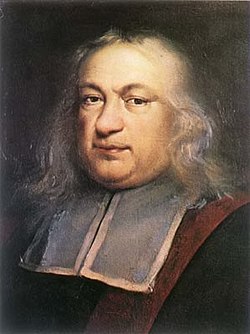Pierre de Fermat Quote
But it is impossible to divide a cube into two cubes, or a fourth power into fourth powers, or generally any power beyond the square into like powers; of this I have found a remarkable demonstration. This margin is too narrow to contain it.
Pierre de Fermat
But it is impossible to divide a cube into two cubes, or a fourth power into fourth powers, or generally any power beyond the square into like powers; of this I have found a remarkable demonstration. This margin is too narrow to contain it.
Related Quotes
If I can draw the slightest smile across a single face obliterated by pain, in that act I will have begun to understand the power of an ordinary human being to perform the seemingly impossible in the...
Craig D. Lounsbrough
Tags:
alter, altering, change, changing, depressed, depression, encourage, encouraging, forlorn, happiness
Never say that you can't do something, or that something seems impossible, or that something can't be done, no matter how discouraging or harrowing it may be; human beings are limited only by what we...
Mike Norton
Tags:
accomplish, can t, chastisement, conqueror, discouragement, disorder, doubt, dream, empowerment, exile
If you think it is possible, it will be possible. If you think it is impossible, the imposible will be possible. Whatever you think; whether posible or impossible will forever be possible to happen.
Israelmore Ayivor
Tags:
amen, be positive, come to pass, extra, extra mile, food for thought, forever, happen, i can, i can do it
About Pierre de Fermat
Pierre de Fermat (; French: [pjɛʁ də fɛʁma]; 17 August 1601 – 12 January 1665) was a French mathematician who is given credit for early developments that led to infinitesimal calculus, including his technique of adequality. In particular, he is recognized for his discovery of an original method of finding the greatest and the smallest ordinates of curved lines, which is analogous to that of differential calculus, then unknown, and his research into number theory. He made notable contributions to analytic geometry, probability, and optics. He is best known for his Fermat's principle for light propagation and his Fermat's Last Theorem in number theory, which he described in a note at the margin of a copy of Diophantus' Arithmetica. He was also a lawyer at the parlement of Toulouse, France.
